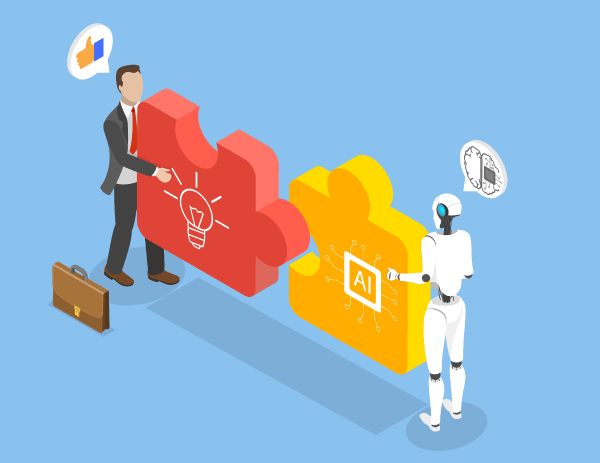DIGITAL LIFE

Artificial intelligence already writes, decides, and even learns for us. But neuroscientists warn: this convenience can weaken essential skills like critical thinking, creativity, and language. Science shows that by delegating everything to algorithms, we risk losing part of what makes us human.
Artificial intelligence has gone from science fiction to an everyday tool. It writes texts, solves calculations, and summarizes information in seconds. But this efficiency raises an uncomfortable question: to what extent does overreliance on machines reduce our ability to think for ourselves? Researchers argue that the challenge is not just technological, but cognitive and human.
Antonio Cerella, professor of Social and Political Studies at Nottingham Trent University (UK), warns that the overuse of AI can weaken critical thinking and the creative use of language. He believes that "more and more young people write without thinking and think without writing."
Just as GPS has reduced drivers' natural navigation skills—in the past, London taxi drivers had to memorize thousands of streets, which physically expanded the hippocampus—reliance on AI-generated texts can erode the link between words and imagination.
In education: impeccable texts, empty ideas...The most visible impact is already appearing in classrooms. Work produced with the help of AI is impeccable in form, but often superficial in content. Teachers report that students arrive with ready-made answers, but without any reflection.
Cerella summarizes: "We are witnessing the silent erosion of thinking as a creative activity." The fear is that the process of making mistakes, revising, and trying again—essential to developing intelligence—will be replaced by the search for instant solutions.
Recent research reinforces this concern. A 2024 review showed that overreliance on AI reduces brain activity linked to cognitive effort. Instead of developing complex reasoning, users prefer quick answers. A study of 285 university students from China and Pakistan concluded that those most dependent on AI had less autonomy to solve problems and make decisions. According to the authors, "artificial intelligence does not allow humans to practice memory or analytical skills."
Neurolinguist Michel Paradis adds: when active language use diminishes, linguistic atrophy occurs, similar to the weakening of a muscle without exercise.
Cerella emphasizes that abstraction, memory, and emotional expression develop only when we use language creatively. If words become "suggested" by machines, part of the act of constructing meaning is lost.
The risk is a culture dominated by speed, where emotion replaces understanding and vocabulary becomes impoverished. As he summarizes: "We are moving from talking to think to just typing to react."
The necessary balance...This does not mean rejecting technology. For researchers, the challenge is to use AI as a support, not as a substitute for the mind. This implies investing in critical reading, reflective writing, and independent reasoning, with algorithms functioning as auxiliary tools.
The choice is ours: artificial intelligence can be an ally to human thought or its replacement. What will define the future is how we choose to use it—and how we choose to value our own words.
mundophone

No comments:
Post a Comment